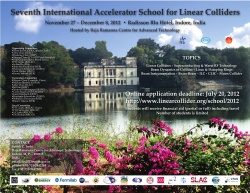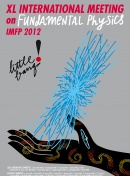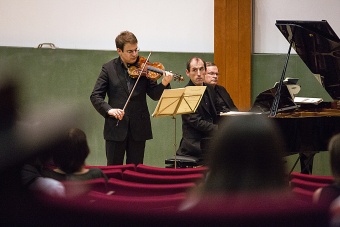Image of the week
|
|
Image: DESY, Thies Rätzke
Brian Foster has many hobbies, including music and running the European part of the Global Design Effort as European Regional Director. He recently staged the German premiere of the musical piece “Particle Partitas”, specially written by composer and physicist Edward Cowie and musician Jack Liebeck for an “unusual interaction of music and particle physics”, in the DESY auditorium. This is one of a series of performance lectures by Brian Foster (on microphone and violin) and Jack Liebeck on the violin. They were joined this time by pianist Danny Driver.
|
In the News
-
from The Australian
11 July
At the top of the wish list is a new collider. The options are a super high-energy version of the circular Large Hadron Collider, which provided evidence that the so-called God particle exists, or a linear collider, which would explore the questions of deep physics and the earliest moments.
-
from balsas.lt
9 July
Tačiau bėda ta, kad reikiamos energijos elektronų-pozitronų greitintuvas būtų dar didesnis nei LHC. Pasiūlymas statyti tokį įrenginį, Tarptautinį linijinį greitintuvą (angl. International Linear Collider, ILC), pateiktas jau senokai, tačiau turint omenyje 20 mlrd. JAV dolerių siekiančią jo kainą, norą prisidėti išreiškė vos kelios šalys.
-
from The Herald News
7 July
Already the lab has been laying the groundwork for several new endeavors at the frontiers of physics — a high-intensity proton accelerator, equipment for the Dark Energy Survey that will help scientists understand the cosmic frontier, and a proposed International Linear Collider that would complement the work being done at CERN.
-
from New Scientist
5 July 2012
Particle physicists’ traditional answer to this problem has been to suggest building a machine to collide electrons and their antiparticles, positrons. Unlike protons, electrons are elementary particles, so don’t disintegrate on impact, making it clearer what is produced when they collide.
Copyright © 2026 ILC International Development Team




